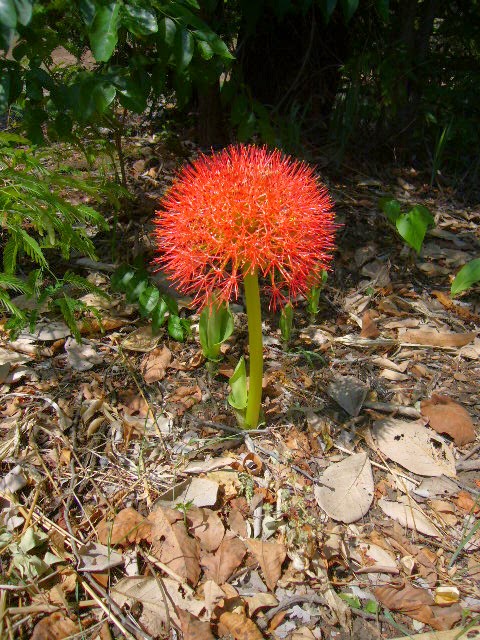The rains are still awaited and the temperature is ever increasing. Some rain has fallen elsewhere. Schools have all broken up for Christmas and the local children are enjoying playing and fishing in the lake.
The Board Room at Funwe Farm built in local traditional style, Ian Gilbert and Banda are in conference. The sand floor is watered heavily to keep the temperature inside down. (Air conditioning!)
Cattle at Funwe. The breeding herd is of local Zebu cattle running with a Friesian bull; the Zebu is resiliant to the climate and conditions, the Friesian genes improve milk yield. All heifers go to a milk producers, association further south, the steers are fattened for anything up to 3 years. The cattle range the bush, they are fed maize stalks and vegetable haulms if transport and labour are available. When the rains come there will be plenty to graze.

African Weaver Bird nests. These sociable birds construct intricate nests from surounding materials. Left, reeds from the lakeshore, right twigs from a garden. Birdlife is plentiful, there is a resident fish eagle who periodically swoops for his lunch, hammerkops, hoopoes, hornbills are all regular sightings.
No queuing at the pumps! Diesel £1.078 per litre, petrol £1.04 per litre. Ian drives this Toyota land cruiser which is ideal for the farms and the roads, we have almost as many pot holes as UK roads, lots of speed traps and police road blocks. Driving can be hazardous, roads are not busy but unpredictable; there are animals, people, pick up trucks, buses in all shapes and sizes and of course bicycles to dodge.
We share our garden with a number of monkeys, mothers, babies and adolescents who are very naughty and given half a chance will sneak in, steal food and shred curtains, doors to be kept closed at all times.
We have an artificial Christmas tree which will go up sometime next week, also some cards brought from home and gifts from the children. This will be our first Christmas on our own for 40 years!
Have fun.
T and I














































